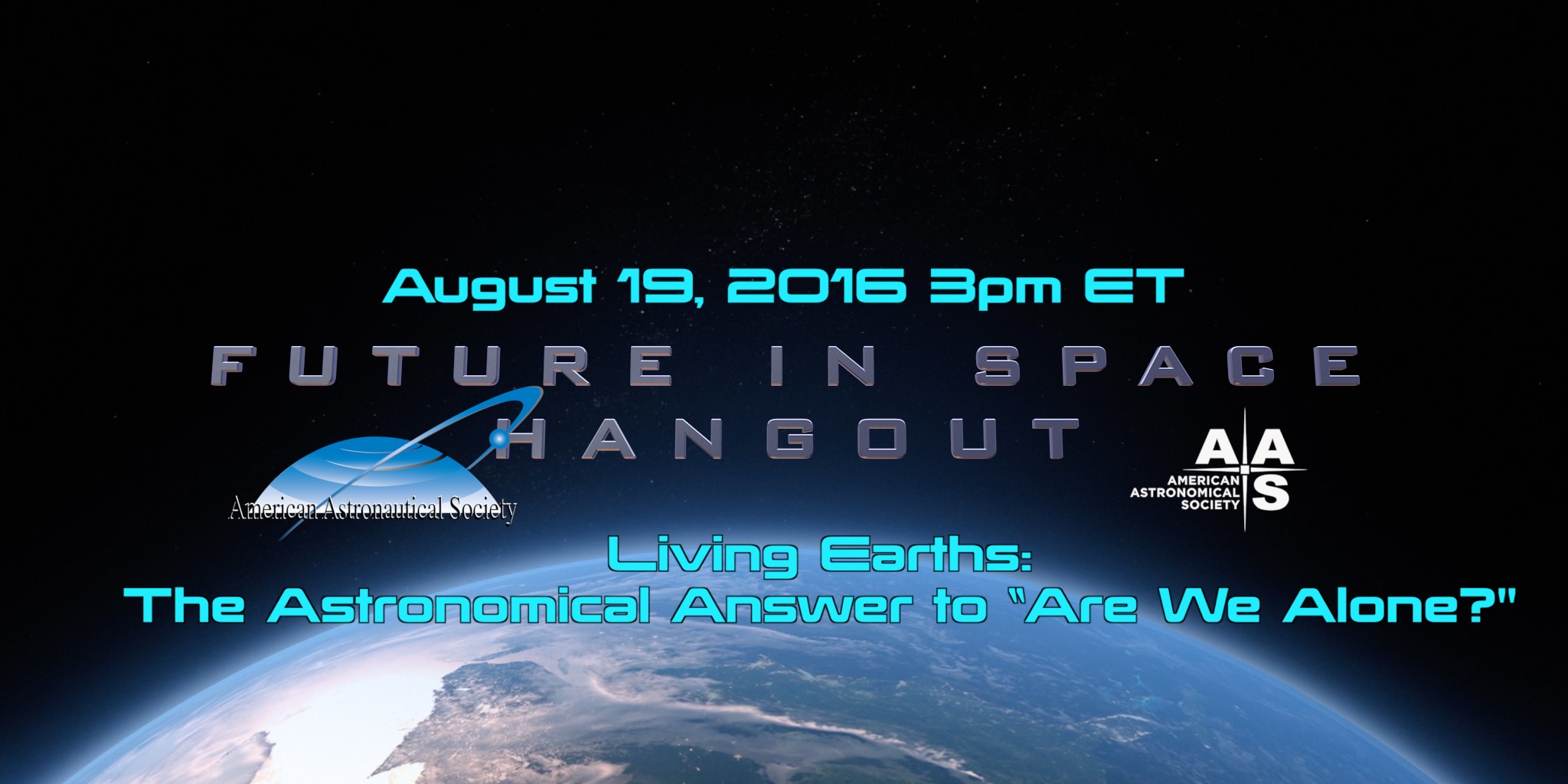"Living Earths" Hangout on 19 August
Alberto Conti BAE Systems, Inc.
NASA has started four concept studies of major space observatories that could launch sometime in the coming decades. In this fourth in our series on these studies, we discuss the Habitable Exoplanet (HabEx) concept. HabEx is a design for a highly capable observatory with one of the most ambitious and exciting goals: the astronomical search for life-bearing planets in the solar neighborhood.
The discovery over the past few years that stars in the Milky Way may each be orbited by at least one planet suggests that among these numerous planetary systems may reside planets similar to Earth and perhaps even planets that harbor life. The HabEx concept is intended to be the astronomical community’s response to an age-old question of humanity, "Are we alone in the cosmos?" Such observations require a large pristine optical space telescope, which will also enable a broad range of unique investigations in general astrophysics.
Please join our regular hosts, Tony Darnell, Alberto Conti, and Harley Thronson, and guests Dr. Bertrand Mennesson (NASA JPL), Dr. Scott Gaudi (Ohio State University), and Dr. Rachel Somerville (Rutgers University) for the hangout "Living Earths: The Astronomical Answer to 'Are We Alone?'" on Friday, 19 August, at 3:00 pm ET. The panel will discuss the astronomical search for life, exciting new studies in general astrophysics, and the technological advances that will make it possible.
We hope you can join us! Please bring your questions and comments for our experts. You can join us on YouTube and RSVP on Facebook.

What Are "Future in Space" Hangouts?
"Future In Space" Hangouts bring the future of space astronomy and astronautics to you every month via Hangouts on Air. With the cooperation of both the American Astronomical Society (AAS) and the American Astronautical Society (the other AAS), our hosts Tony Darnell, Alberto Conti, and Harley Thronson bring you topics that look beyond current space-astronomy research and missions and peer into the unfolding possibilities of what we may learn about the universe with members of the American Astronomical Society. We will peer into what we hope to learn about exoplanets, black holes, the early universe, quasars, and life in the universe along with what technologies might help us — and a whole host of other topics in space astronomy.
We will also explore the technology and engineering possibilities of space travel and research with members of the American Astronautical Society and probe what our future in space may look like and how we might get there. We will examine the underlying technologies of future space telescopes, orbiters, landers, and human space vehicles. We will delve into topics that help us understand the possibilities and limitations of human space flight and eventual human colonization of other worlds.
We hope you can join us each month as we bring experts from both AAS's — people who think about and plan for our future in space — to your computer, tablet, or smartphone. We invite you to bring your questions and comments and get ready to learn about the amazing possibilities for the future of space astronomy and exploration.

